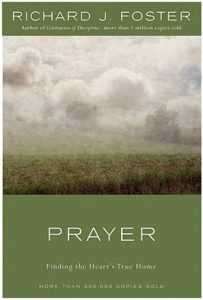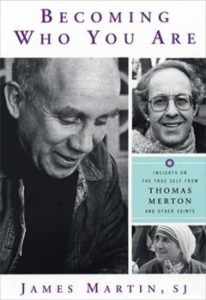
Takeaway: If you are serious about learning about prayer and have not read this book yet, you need to.
I have read this book at least once previously (and I think twice.) It would not be the first book I recommend to someone that want to start out learning about prayer. But it is one of the more important modern books on prayer.
Prayer is one of those topics in Christianity that is hard to write about. It is something learned best by doing and by being mentored by others. Surrounding yourself with people that pray is much better than surrounding yourself with books on prayer.
That being said, when you have spent time learning to pray with others, it is good to spend some time reading about the why and how of prayer. No book will fully explain that, of course. But Richard Foster does a very good job showing the different ways that prayer occurs within the Christian faith. Few modern authors are as widely read and as fluent in different streams of Christianity as Richard Foster. That is both helpful, and the primary reason I would not suggest this to someone that is new to prayer. There is just too much here for someone that does not have a good grounding and idea about what type of pray-er they are.


 Summary: A pastor’s thoughts on being a pastor (and I think an essential book for anyone that relates to pastors.)
Summary: A pastor’s thoughts on being a pastor (and I think an essential book for anyone that relates to pastors.) Summary: Spiritual leaders are human, full of sin as all of us, but willing to have their sin redeemed by God for greater glory.
Summary: Spiritual leaders are human, full of sin as all of us, but willing to have their sin redeemed by God for greater glory. Takeaway: The gift of friends that allow us to explore and try out and explore ideas in safety and love is truly a gift that we all need.
Takeaway: The gift of friends that allow us to explore and try out and explore ideas in safety and love is truly a gift that we all need. Summary: An Abbot feels he receives a call from God to leave his order and return to the world.
Summary: An Abbot feels he receives a call from God to leave his order and return to the world. Summary: The church is where we we can learn to grow up as Christ intends.
Summary: The church is where we we can learn to grow up as Christ intends. Takeaway: One of the best examples of how fiction is important to give form to important ideas.
Takeaway: One of the best examples of how fiction is important to give form to important ideas. Summary: God is God of all of us, not just the extraordinary that get the world’s attention.
Summary: God is God of all of us, not just the extraordinary that get the world’s attention.